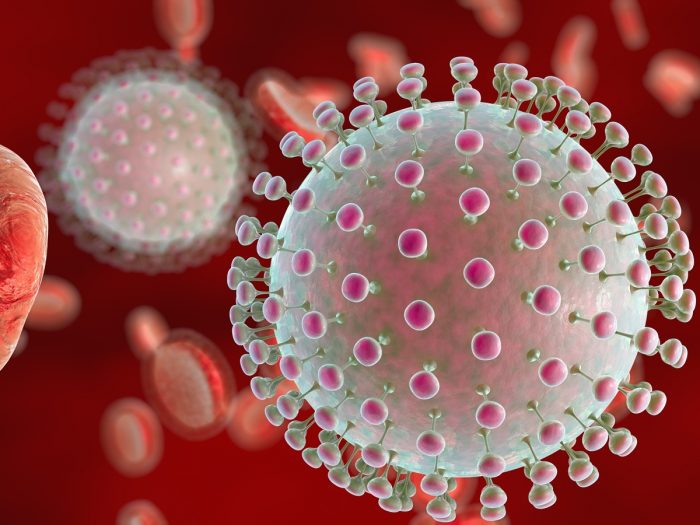What makes the Covid-19 so contagious? A joint study by the National Institutes of Health, CDC, UCLA and Princeton University, shows that the virus stays stable for several hours to days on surfaces and in the air. Published in The New England Journal of Medicine, these latest findings show that a given surface and air remain contagious for hours after exposure to the virus. [1]

The highly contagious Covid-19 has caused a worldwide pandemic. Photo Credit: Shutterstock
The scientists compared the Covid-19 to SARS-CoV-1, the coronavirus which was the precursor to the Covid-19. It was also treated through contact tracing and isolation. However, the Covid-19 is far more contagious and has caused a wider outbreak. To analyze this pattern, scientists attempted to mimic the behavior of the virus as it was deposited by an infected person on everyday objects in a hospital or household setting. They then ascertained how long the virus remained infectious on such surfaces.
The study found that the stability of both viruses is very similar. Their half-lives were similar in the air (1.1-1.2 hours) and on copper. Covid-19 has a longer half-life on cardboard. The longest viability, however, was on stainless steel (5.6 hours) and plastic (6.8 hours).
Their observations were:
- Evidence suggests that Covid-19 is more widespread because the infected people may be spreading it without recognizing the symptoms or prior to recognizing the symptoms. This makes the containment of the disease more difficult than in the case of SARS-CoV-1.
- Unlike SARS-CoV-1 where secondary transmission was largely limited to a healthcare setting, Covid-19 spread seems to occur mostly in a community setting. However, healthcare environments are equally vulnerable. The stability of the virus suggests that healthcare settings are equally vulnerable.
- The transmission of the virus is possible through aerosol for hours and through contaminated surfaces for days.
These findings show that current measures of isolation, quarantine, and sanitizing is essential in containing the spread of Covid-19.
COVID-19 is an emerging, rapidly evolving situation.
Get the latest public health information from CDC.
Get the latest research from NIH. [2] [3]
